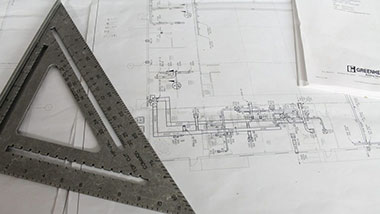Missing Proof Of “Habitual Addiction” In Florida Dram Shop Case
Personal InjuryIn the case of Hayes Robertson Group, Inc. v. Timothy Christopher Cherry, Case Numbers 3D-18-106 and 3D17-2704 (Fla. 3rd DCA December 12, 2018) Florida’s Third DCA upheld a trial court’s exclusion of expert testimony regarding “habitual addiction” in a “dram shop” claim and held that nominal proposals for settlement to the plaintiffs were not made in good faith at the time.
The Facts And The Ugly Truth
An employee of Hayes Robertson Group (Fogarty’s Restaurant) caused a car accident that killed one person and injured three others in Key West, Florida. The employee, Daniel Mira, Jr., was a line cook at Fogarty’s and enjoyed a 50% off discount on alcoholic drinks at the restuarant as a benefit of being an employee (***subject to approval by the manager on duty).
On the night in question, the facts show that Mira returned the to restaurant after his shift and consumed an unknown amount of alcoholic beverages before causing the accident. It was undisputed that Mira had a blood alcohol level that was far in excess of legal limit.
The plaintiffs sued Fogarty’s for permitting its employee to leave the business premises intoxicated (See Carroll Air Systems, Inc. v. Greenbaum, 629 So. 2d 914 (Fla. 4th DCA 1993) and for a violation of section 768.125, Fla. Stat. (Florida’s “Dram Shop” Act) which requires that the plaintiff prove that the bar or restaurant “knowingly serve a person habitually addicted” to alcohol.
In an effort to try to prove habitual addiction, the plaintiff hired an expert who gave an opinion that “anyone who can achieve a blood alcohol concentration exceeding 0.16 grams per deciliter and display some degree of function even if poor (walking, talking, etc.), has developed enough tolerance to the overt behavioral effects of alcohol to be defined as habitually addicted to alcohol.”
Unfortunately for the plaintiffs, jury found that Fogarty’s was not negligent in allowing Mira to leave the restaurant in an intoxicated condition and that Fogarty’s did not knowingly serve alcohol to a person who was habitually addicted to alcohol.
We May Not Always Understand Or Agree With What Juries Do, But…
In the Carroll Air Systems case, a manager for a company drank heavily at dinner meeting with other professionals in his field. The company defended the case by saying that the manager was not in the course and scope of employment and, therefore, the company is not responsible.
The jury in Carroll Air Systems disagreed and found that the manager was in the course and scope of employment because all of the manager’s expenses to attend the conference were paid for by the company, that other employees were staying at the hotel where the conference was held (at the expense of the company), that the company encouraged employees to drink with customers and reimbursed them for drinks, and that the company had reason to know the manager was drunk and should not be driving from the conference.
In this case, the jury must have felt that the employee discount of 50% (subject to approval of management on duty) was not important in this case. However, that is finding is not law and is only applicable to this case.
With that being said, the fact that the restaurant could not provide a bar tab for Mira on the night in question suggests that the restaurant may not have in fact charged Mira anything for his drinks that night. Regardless, the fact that a manager is supposed to approve the discount is an element of control over employees that can be argued as an assumption of a duty to not allow excessively intoxicated employees (who are off the clock) to leave.
Otherwise, if the restaurant did not intend to exercise control (or perhaps restraint might be the better word), then why not offer the same percentage discount without the manager’s approval? For instance, the restaurant very easily could have said that the employee discount was 50% off the first two drinks of your choice WITHOUT a manager’s approval.
Problem With The “Habitually Addicted” Standard For Dram Shop Liability
Florida’s dram shop liability statute favors bars and restaurants. If the government wanted to prevent DUI accidents (apparently it does not), then the government should have require that a bar or restaurant stop serving alcohol to someone who is clearly intoxicated and require them to advise that person that they should not drive in order to attach civil liability.
Some may argue that is not enough, however, bars and restaurants are not insurers of personal conduct.
With that being said, the requirement that a plaintiff prove that a bar or restaurant “knowingly served” someone who is “habitually addicted” to alcohol is nearly an impossible legal standard to meet and it is surprising that the law makes the introduction of either reputation or other extrinsic evidence of bad conduct an element of civil liability.
Proposal For Settlement Not Made In Good Faith
Several proposals for settlement were made to the plaintiffs by Fogarty’s for $500 per person and $100 per person. As we know, the import of losing on a proposal for settlement is that the loser is charged with paying the winner’s attorney fees and costs after the time period to accept the proposal expires.
The Third DCA held that these proposals were not made in good faith because there was “ample circumstantial evidence” regarding Mira’s consumption of alcohol that were “certainly no guarantee” that a jury would return a verdict for the restaurant. Hence, the restaurant (despite being firm in its position that it was not responsible) did not have a reasonable basis at the time the offers were made to conclude that its exposure was nominal.
Winning Is Not Everything
Even though the plaintiffs lost their dram shop case against the restaurant, they put up a good fight for a good cause. This case should serve as potential warning to businesses that serve alcohol to their employees that they could (does not mean they will) be held responsible in a courtroom if their actions or policies encourage drinking and reckless behavior. In that sense, raising awareness of the issue is the true victory for the plaintiffs even if there was no money in the claim.
Get Help For Your Case
When someone is injured because a bar or restaurant failed to exercise reasonable restraint when serving alcohol, you can expect the bar or restaurant to deny liability and put up a fight. To win your case, you will need not only the right evidence but also the right personal injury attorney to help you. Contact us today to schedule your free consultation with a Lakeland, Florida personal injury attorney to discuss whether you have a dram shop case under Florida law.


